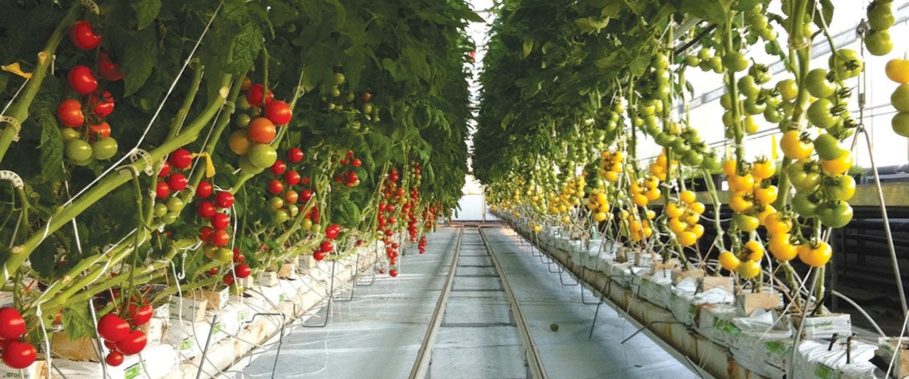In the heart of Lagos, Nigeria’s most populous and fast-paced city, a quiet revolution is taking root. On rooftops, in backyards, and on vacant plots between buildings, a new set of urban farmers is beginning to grow vegetables, herbs, and fruits to feed a growing market of health-conscious consumers.
With rising food prices, questionable produce quality, and a renewed interest in organic, chemical-free diets, urban farming is no longer just a passion project. It’s becoming a viable business, and potentially a lifeline for Lagos’s overstretched food system.
Join our WhatsApp ChannelAs part of measures to ensure food sustainability, the Lagos State government has kicked off an initiative aimed at creating awareness at the grassroots about the need to practice urban farming.
During a one-day stakeholders’ workshop on urban agriculture, held on Thursday, 19 June at the Fresh Food Hub, Idi-Oro, Mushin, the Lagos State Agricultural Development Authority emphasised the need for the adoption of urban farming as an integrative solution towards solving food insecurity in the state.
Speaking at the workshop organised to sensitise heads of agric units of the local government areas and environmental health officers in the state, the state Commissioner for Agriculture and Food Systems, Abisola Olusanya, said that practising urban farming would help reduce dependence on external food sources, reduce costs and increase access to fresh and nutritious products.
“Integrating agriculture into our urban landscapes reduces dependence on external food sources, lowers transportation costs, and improves access to fresh, nutritious produce, and the Lagos State Government, through the Ministry of Agriculture and Food Systems and its agencies, is fully committed to this vision,” Olusanya, who was represented by the Director of Veterinary Services of the ministry, Dr Rasheed Macaulay, stated.
Also speaking at the workshop, Programme Manager of the Lagos State Agricultural Development Authority, Alade Aliru, stressed that the initiative was to inspire action on the need to utilise spaces in urban areas for farming to boost food production.
“Through this initiative, we aim to deepen awareness and inspire action on how urban spaces — no matter how small — can be transformed into productive agricultural zones,” Aliru stated. “From backyard gardens to vertical farms and container planting, urban agriculture is fast becoming a vital component of our food ecosystem.”
From Backyard to Business
Urban farming in Lagos is largely driven by a mix of young entrepreneurs, retired professionals, and tech-savvy agripreneurs who see a business opportunity in the city’s increasing demand for safe, fresh produce.
One of the farmers based in the Lekki area of Lagos said he started by growing lettuce and basil in plastic crates on his balcony. Today, he supplies restaurants and health food stores in Victoria Island, selling fresh herbs at a premium. “People want quality and traceability,” he says. “They want to know who grew their food and how.”
With limited land, urban farmers use techniques like vertical farming, hydroponics, aquaponics, and container planting to grow efficiently in small spaces. It’s not uncommon to find okra and ugu thriving in sacks beside air conditioning units or tomatoes blooming on shaded rooftops.
Demand from the Health-Conscious Middle Class
A new middle class in Lagos is increasingly wary of food sprayed with pesticides, transported for days, and stored in unhygienic conditions. Urban dwellers, especially the educated and affluent, are embracing organic eating, juice cleanses, and clean-label shopping.
This group is willing to pay ₦1,500–₦2,500 per pack for fresh spinach or pesticide-free tomatoes from urban farms, versus ₦800–₦1,000 for conventional market produce. Subscription-based vegetable box services and farm-to-table delivery models are gaining ground, with urban farms supplying everything from mint leaves to kale, cucumbers, and strawberries.
Restaurants and wellness cafés are also getting on board, sourcing from local farms to meet the expectations of health-conscious diners.
Challenges Beneath the Soil
Yet, for all its promise, urban farming in Lagos faces serious hurdles:
Land Access: With real estate prices sky-high, securing permanent space for growing crops is a major barrier.
Water Supply: Farming in Lagos requires a consistent water source, but many areas experience erratic supply or depend on boreholes.
Start-Up Costs: While cheaper than rural farming in some ways, setting up a small hydroponic or vertical farm can cost between ₦500,000 to ₦2 million.
Technical Know-How: Not all aspiring farmers have the training or expertise to maintain yields, prevent pest outbreaks, or scale operations.
In addition, regulatory support is minimal. Most urban farms operate without formal licensing, extension services, or access to government incentives available to rural farmers.
READ ALSO: How Lagos $29 Billion Climate Crisis Threatens Infrastructure, Food Security
A Missed Opportunity for Policy Makers?
Experts argue that supporting urban agriculture could help reduce Lagos’s dependence on food trucked in from hundreds of kilometers away, cutting transport emissions, lowering prices, and improving food security.
“The government needs to recognize urban farming as part of the solution,” says a Lagos-based agro-consultant. “They can provide incentives like tax breaks, community land access, or training programs.”
If Lagos State, for instance, invested in urban agriculture hubs, equipped with shared tools, greenhouses, and water infrastructure, thousands more could be empowered to grow for their communities.

Tech-Enabled Farming: A Scalable Future?
Tech startups are now entering the space. Some offer IoT-based tools to monitor soil, water, and temperature, helping urban farmers optimize yields. Others provide mobile platforms where consumers can order directly from nearby farms.
READ ALSO: Food Security In Nigeria: A National Priority For Economic Stability
With Lagos’s population projected to hit 30 million by 2035, solutions that localize food supply will be crucial. Urban farming, when scaled and supported, could offer not only healthier produce but also jobs, environmental benefits, and entrepreneurship pathways.
Cultivating More Than Crops
Urban farming in Lagos is more than a health trend; it’s a response to a broken food system and a growing consciousness around what we eat. While it may not yet feed the entire city, it is already feeding a movement, one that could shape the future of food in Nigeria’s biggest metropolis.
And as health-conscious Lagosians demand fresher, cleaner, traceable food, those who plant today may well be reaping more than just crops tomorrow; they could be cultivating the next frontier of food business in Nigeria.
Amanze Chinonye is a Staff Correspondent at Prime Business Africa, a rising star in the literary world, weaving captivating stories that transport readers to the vibrant landscapes of Nigeria and the rest of Africa. With a unique voice that blends with the newspaper's tradition and style, Chinonye's writing is a masterful exploration of the human condition, delving into themes of identity, culture, and social justice. Through her words, Chinonye paints vivid portraits of everyday African life, from the bustling markets of Nigeria's Lagos to the quiet villages of South Africa's countryside . With a keen eye for detail and a deep understanding of the complexities of Nigerian society, Chinonye's writing is both a testament to the country's rich cultural heritage and a powerful call to action for a brighter future. As a writer, Chinonye is a true storyteller, using her dexterity to educate, inspire, and uplift readers around the world.









